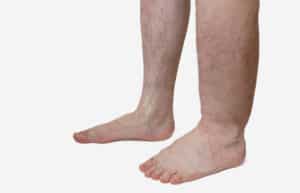Psoriatic arthritis (PsA) is an inflammatory, autoimmune condition that affects your skin and joints. While the actual cause of psoriatic arthritis isn’t known, it’s thought that an overproduction of molecules in the body more than likely activate the symptoms of psoriatic arthritis.
When body molecules like the IL-17A protein are overproduced, it causes the body’s immune system to trigger inflammatory responses, leading to red, raised patches of thick, scaly, itchy skin (skin plaques) and pain and swelling in joints and tendons.
What Are The Warning Signs of Psoriatic arthritis (PsA)?
The first signs of Psoriatic arthritis (PsA) are different for everyone, any may include any of the following:
- Skin Plaques (Raised, Red Patches of Thick, Scaly, Itchy Skin)
- Changes To Your Nails
- General Fatigue, Back Pain and Stiffness
- Joint Pain or Tenderness Around Joints, Ligaments or Tendons
- Pain and Swelling in Hands or Feet
- Reduced Range of Motion and Physical Ability Because of Joint Pain
- Sausage-like Fingers or Toes
- Joint Damage
How is Psoriatic arthritis (PsA) Diagnosed?
Unfortunately, there isn’t a test that can diagnose Psoriatic arthritis (PsA). A doctor will perform tests to rule out other causes of joint pain, while also conducting an examination of the joints and skin.
X-rays, MRIs and some laboratory tests involving Rheumatoid Factor and Joint Fluid tests can also help narrow down a PsA diagnosis.
Why Is It Important To Treat Psoriatic arthritis (PsA)?
It’s important to diagnose and treat Psoriatic arthritis (PsA) as it may worsen, causing psoriatic arthritis flares. More importantly, if it’s left untreated, psoriatic arthritis may cause permanent joint damage.
How Is Psoriatic arthritis (PsA) Treated?
Psoriatic arthritis (PsA) can be treated, not cured, but dealing with the body’s skin rashes and joint pain.
Treatment will depend on the severity of the symptoms, and it may take testing several before finding relief.
Medications, therapy and even surgery are used to treat Psoriatic arthritis (PsA), again, depending on the symptoms.
Medications include:
- Biologic Agents
- NSAIDs
- Conventional and Targeted DMARDs
- Oral Medication
Physical therapy, occupational and even massage therapies are sometimes used, while steroid injections into affected joints could be consdered.
Finally, in cases with extreme joint damage, joint replacement surgery may be necessary to replace damaged joints with ones made of metal or plastic.
If you believe you or a loved one may be experiencing symptoms or showing warning signs of Psoriatic arthritis, please seek immediate medical help as early diagnosis can make all the difference in the world.








